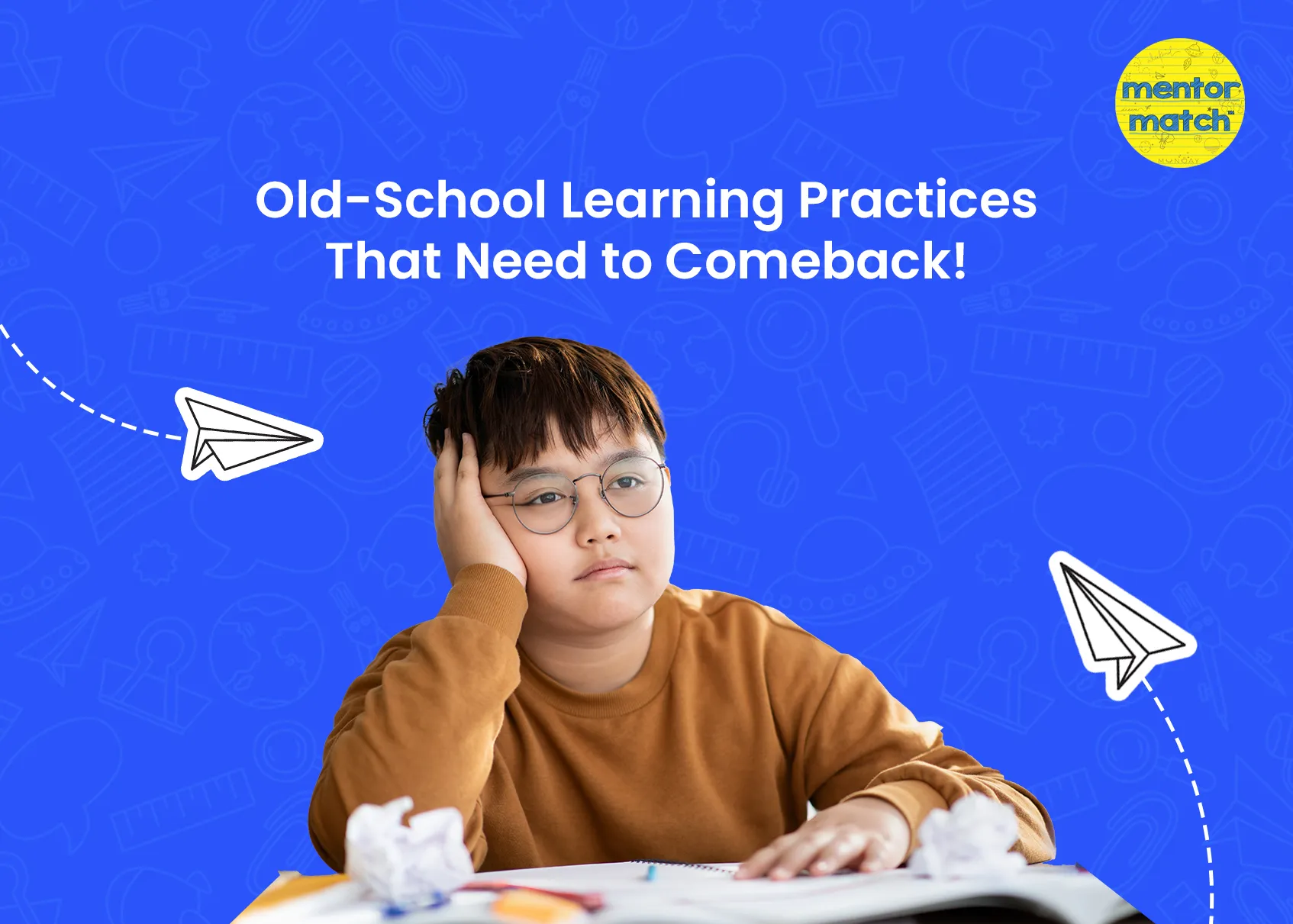
77.32% of parents see better grades in 3 months!
For the parents of this generation and their parents, school and learning meant an entirely different scenario. It involved filling your bags with the heaviest books and notebooks, heading to the library the minute a project was announced, and engaging in hands-on learning because the internet didn’t exist.
However, that is not the case in today’s learning landscape. With the internet and technology simplifying things, students don’t need to undergo the rigorous process of studying and learning to attain knowledge and education.
Type the keywords you’re looking for into the internet, and you are served with hundreds of websites where you can get the answers you’re looking for in a matter of seconds. While the information is helpful, how much does it actually allow our children to sit down and think about the subject or discuss it with people, knowing that it might spring new ideas and opinions?
This is not a millennial or Gen Z learning comparison blog but rather a suggestion that some of the healthier and more effective learning practices of the good old days could make a comeback to help the children of this generation study and learn better.
Taking Notes
Listening to the teacher in the classroom and recording that information in notebooks was one of the best methods for memory retention. It was an active learning tool that ensured students grasped the subject being taught. It also gave them the space to note topics they didn’t understand and research them for better understanding and learning. In today’s learning arena, this practice is often found in 1-on-1 tutoring and online tutoring mediums.
Reading Aloud
Reading out loud in classrooms was one of the top-notch methods to improve comprehension skills and boost confidence in public speaking. Whether it’s science or history, when a student reads aloud, they are forced to pay attention to what they’re reading, in turn registering the topic in their mind and often kindling an interest to know and learn more.
Classroom Debates
When students or teams debate in front of the class, three things happen simultaneously: a competitive nature emerges, research skills take center stage, and oral skills are practiced to perfection. These processes also capture the attention of the students in the audience. Classroom debates are fun, interesting, knowledge-packed, and give students a chance to expand their thinking and form strategies.
The Socratic Method
The Socratic Method is known to ignite curiosity and critical thinking. In a nutshell, the Socratic Method involves the teacher opening a dialogue in the class and encouraging students to pose thought-provoking questions and answers. There are no strict regulations or orders for doing things; every thought and opinion are welcome to be challenged and reasoned with. This intriguing technique helps students stay engaged and sharp.
At Mentor Match, our master mentors use several innovative methods of teaching, including the ones mentioned above in our one-on-one tutoring sessions. Our goal is to bring out the best in every student under our tutelage and guide them toward academic growth, ultimately leading to their goals.



.png)
.webp)
.webp)